'My newborn son - the organ donor'
- Published
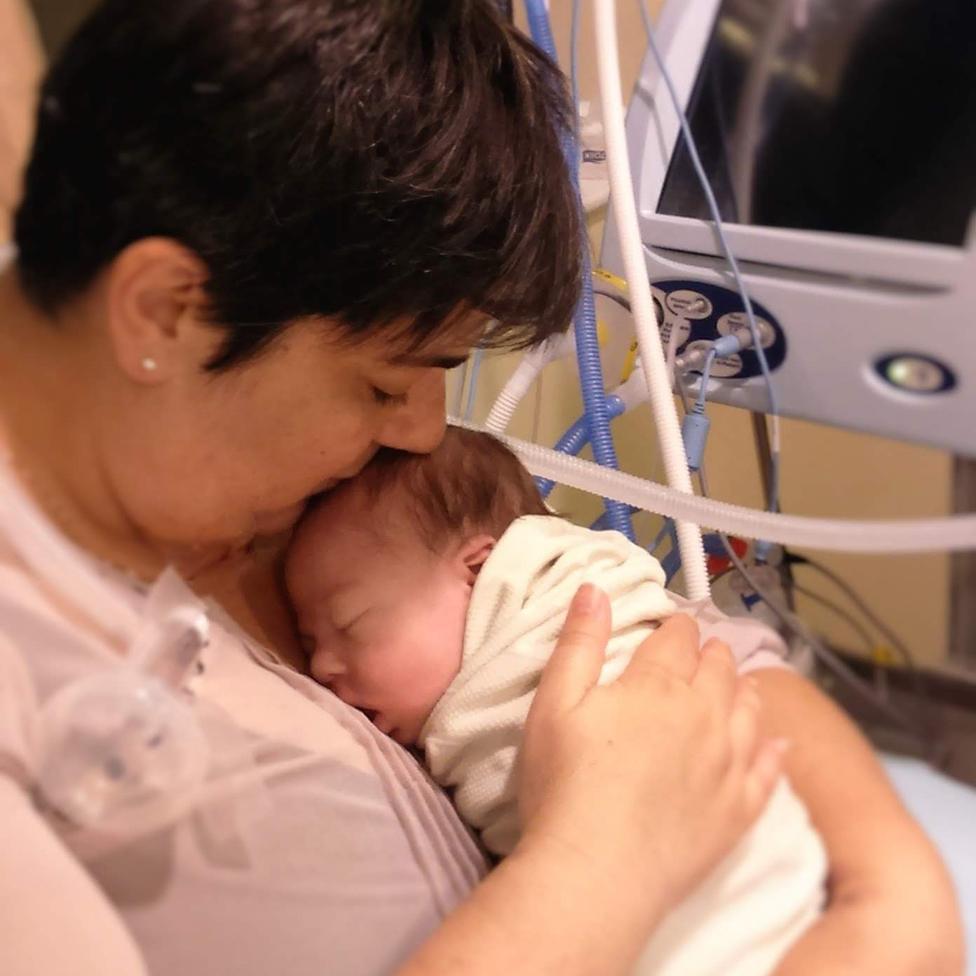

Nothing could prepare Valentina Daprile for losing her son, Angelo Ray, when he was eight days old. But she and her husband Luigi were determined to donate his organs so that another baby could live. It was something the hospital had never considered before.
Valentina will always remember the kindness in the doctor's voice and the careful way he delivered the worst news a parent could ever hear.
"I'm so sorry, but there's nothing we can do for your baby."
The staff at the newborn intensive care unit (Nicu) at King's College Hospital had done everything they could but Angelo Ray would never be able to survive without life support and an MRI scan showed no brain activity.
Thinking back to that day in July 2016, she says it felt as though her whole world was collapsing.
Angelo Ray was just down the corridor resting in his incubator. His mother Valentina wondered how she would go on without him. She hadn't even been able to hold him yet.
"I was so upset to imagine my baby thinking, 'We have been together for nine months, where is my mummy, why has she left me?'" she says.
A week before Valentina had been due to give birth she had collapsed and stopped breathing, a wave of blue spreading up her body. Her husband Luigi called 999 and followed instructions on how to resuscitate his wife. It was the first day of the school summer holidays and so all this was witnessed by their six-year-old son, Leone.
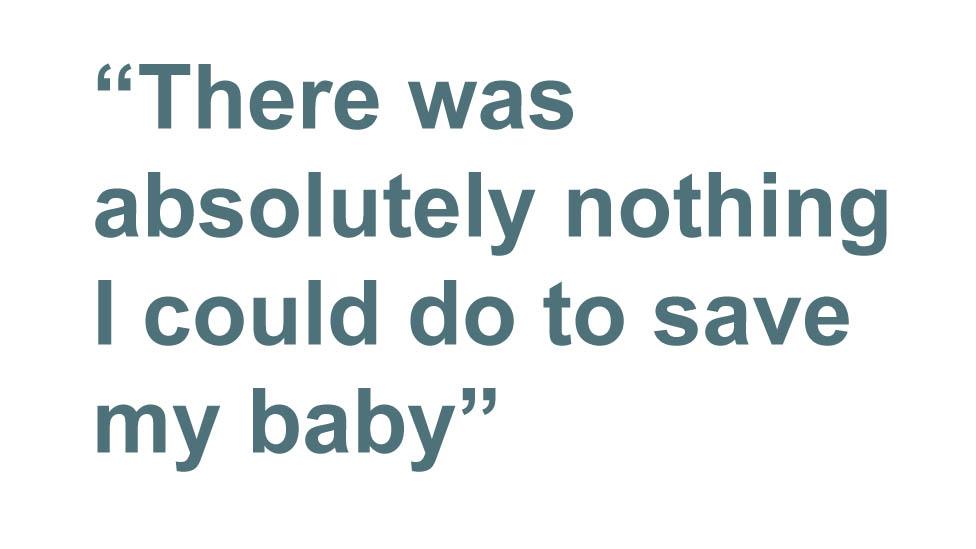
Until that day, Valentina's pregnancy had been complication-free and she had been planning a water birth at home. Instead, Angelo Ray was delivered at Queen Elizabeth Hospital in Woolwich, south London, via an emergency Caesarean section and Valentina was rushed away for life-saving blood transfusions immediately afterwards.
It would be another 24 hours until Valentina got to see her baby, because she was so unwell and he was transferred for specialist care to King's College Hospital in Camberwell. Luigi would spend the days going between the two hospitals until Valentina had recovered enough to be transferred to King's too.
By that time doctors had established just how badly Angelo Ray's brain had been affected by the lack of oxygen in the hours before his birth.
"When the doctor spoke to us the toughest thing to accept was that there was absolutely nothing I could do to save my baby. Literally nothing," Valentina says.
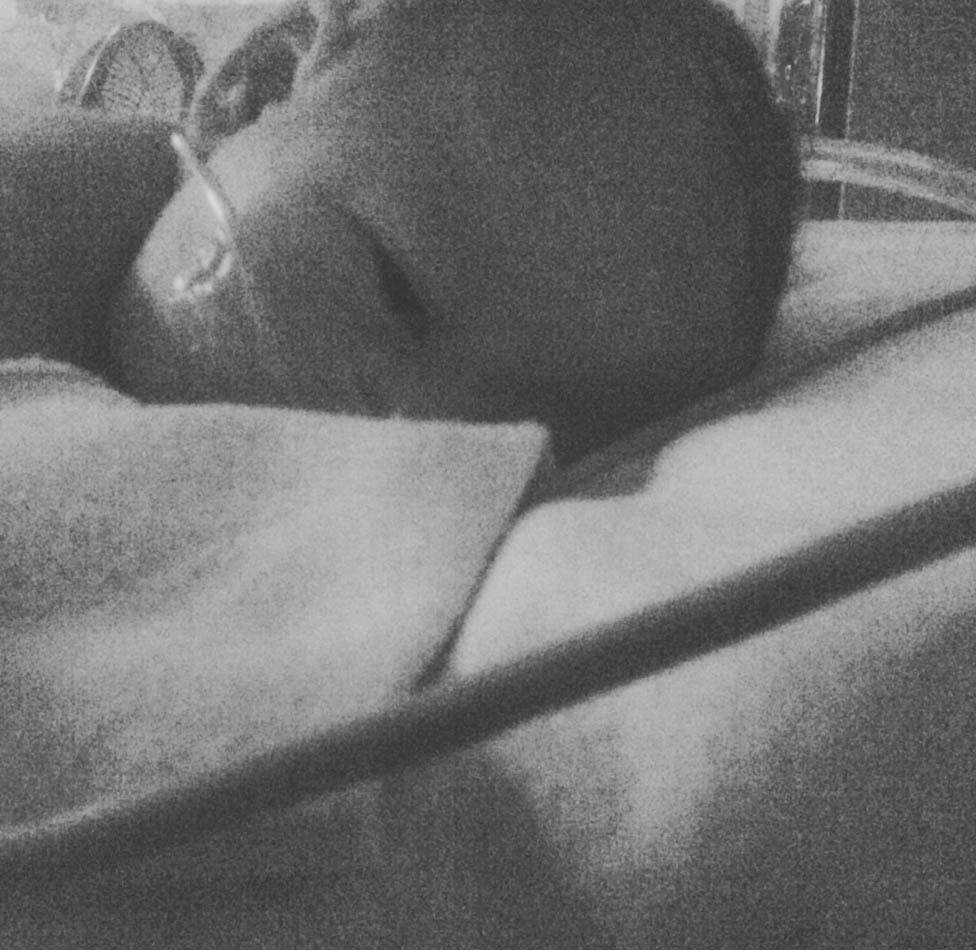

She was a mum with a high-pressure job - she'd always felt confident in her ability to solve all manner of problems and fix what was broken. But not this.
"Just six days old and nobody will ever know him," she thought.
Then, in her thick fog of grief an idea shone through, a small shard of comfort.
"We thought the only thing that would make a bit of sense and to warm our hearts a little bit was to donate Angelo's organs," says Valentina.
"This was something we could actually do and it seemed a waste not to - then this horrible tragedy could serve some purpose."
Amy Overend, a nurse working in the King's Nicu at the time, was with Valentina and Luigi when they suggested organ donation. Never in her five years at the hospital had a conversation like this taken place.
"Adults in intensive care might anticipate a conversation about organ donation because there is so much publicity around it, but it is a really difficult thing to broach with the parent of a newborn baby," says Amy.
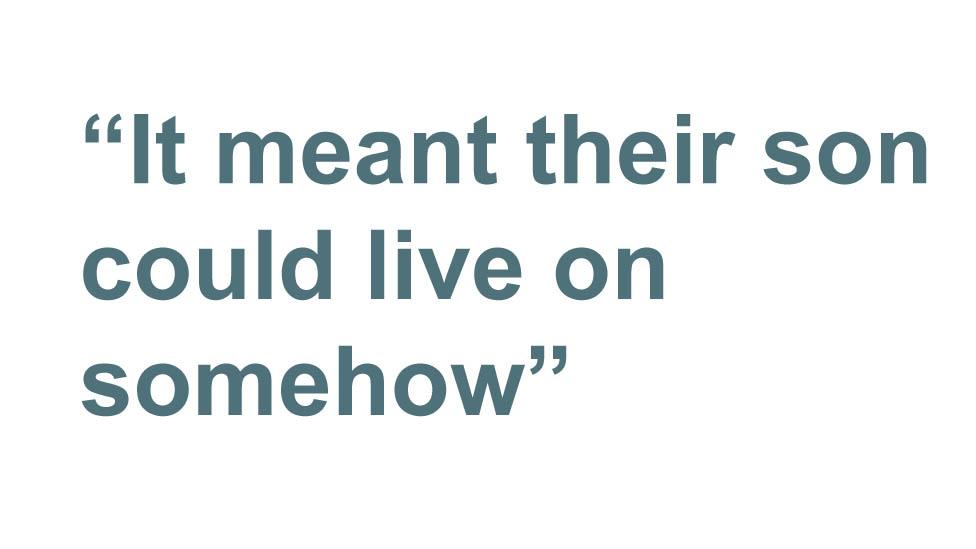
But here were the parents, initiating the conversation themselves. They had a strength she couldn't begin to describe.
The Nicu team began to speak to the hospital's organ donation team and even they were unsure whether it was possible, says Amy. It wasn't something they had done before, and removing organs from such a small baby, and transplanting them, poses extra challenges.
Angelo Ray had some bloods tests to check he would be a viable donor, and which organs it might be possible to use.
Everything was successfully put in place to fulfil the family's wishes. Yes, it was possible for Angelo Ray to be a donor.
"You could see how much it meant to Angelo's family, it meant their son could live on somehow," says Amy.

Organ donation from a neonatal baby (a baby under 28 days old) is incredibly rare. In ten years just 40 babies this age have become donors, according to NHS Blood and Transplant.
Twenty-six donated tissue - heart valves and corneas - while 14 donated organs, or both organs and tissues.
They have helped save the lives of patients of all ages - from other babies to children and adults. While some organs would only be suitable for other babies, there are others, such as the kidneys, which can be used for an adult because they can grow.
The number of neonatal organ donors is slowly rising thanks to greater public awareness, growing expertise around retrieving and transplanting smaller sized organs and greater willingness from Nicus to embrace having the conversation about organ donation with families making end of life choices.

There was still the question of how to tell six-year-old Leone that the brother he had been so excited to have wouldn't be coming home with them.
Amy felt very privileged to be asked by Valentina and Luigi to explain things to their son.
In a quiet corner the two of them sat down with some chocolate cake and she talked to Leone about how unwell his little brother was.
She explained he wouldn't be going home with them, he would be going to heaven instead. Leone listened intently. He'd been trying so hard to stay strong for his parents and had just one question - "Is it OK if I'm sad?"
Valentina, Luigi and Leone picked the name Angelo Ray together as a family. The Italian word for Angel because they thought he looked like a perfect cherub and Ray because Leone had wanted to give his brother a name beginning with R.
Before Angelo's life support was withdrawn Leone sat and read his little brother a story about an elephant called Humpety Trumpety, ignoring all the wires and tubes that snaked around them. He drew some pictures, decorating them with stickers, and they were taped to the inside of the incubator. The six-year-old was able to reach into the incubator to hold his brother's hand and chat to him. All this was his way of saying goodbye.
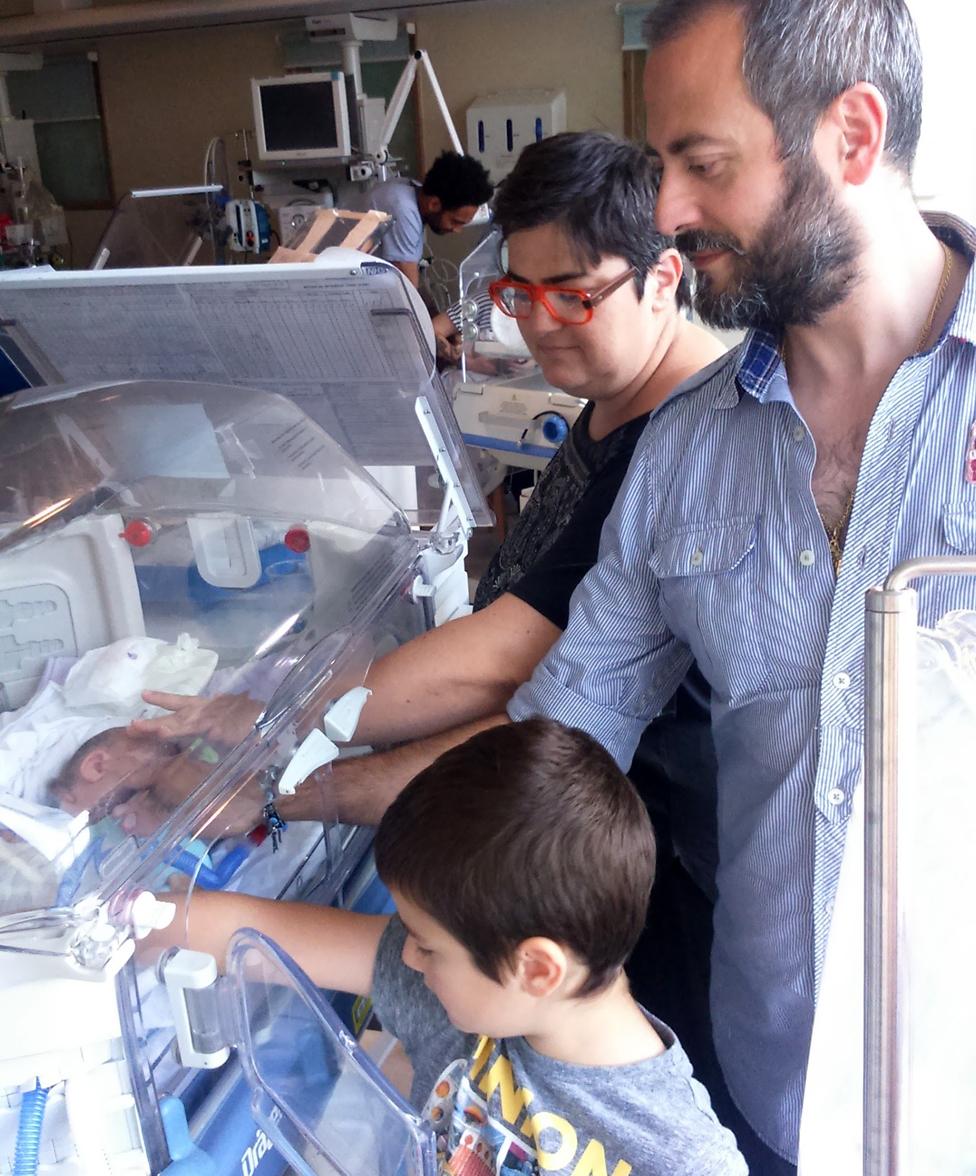

The time came for Angelo Ray's life support to be withdrawn. Valentina and Luigi accompanied their baby son to a private room, near the theatre, so they could be with him when his heart stopped beating.
An hour passed and Angelo Ray was still breathing, so the doctors decided to return the family to the Nicu ward to spend time together while nature took its course. The parents were told it would be possible for Angelo Ray's heart valves to be donated after he died.
There in the ward Valentina held her son for what would be the first and final time.
She nuzzled into the warmth of his body and took in the weight of him in her arms.
"I will never forget his smell, the soft velvet of his skin," she says.
The three of them sat together cocooned away from the rest of the ward by screens which had been put up by the nurses. The Nicu is several storeys up and its huge windows overlook sweeping views of the capital.
"It was a starry night and London looked just beautiful," Valentina remembers.
"There was a moment when he was on my chest and it felt like our hearts vibrated together, I can't explain it. I like to think that he knew he was finally back with his mummy."
Soon afterwards he closed his eyes.
"He took his last breath on me, in the warmth of my arms. I know many mums don't have that privilege and it was an incredible gift I will cherish forever."
Angelo Ray died on 30 July 2016, he was eight days old.
When he died, his parents felt at peace. They were given the chance to bathe him and christen him with oil.
"I made him nice and clean, I wanted to purify him after so many days in the hospital," says Valentina.
They softly said prayers and gave him a fresh nappy. They dressed him in a special white babygrow decorated with four hearts, linked together by a golden thread.
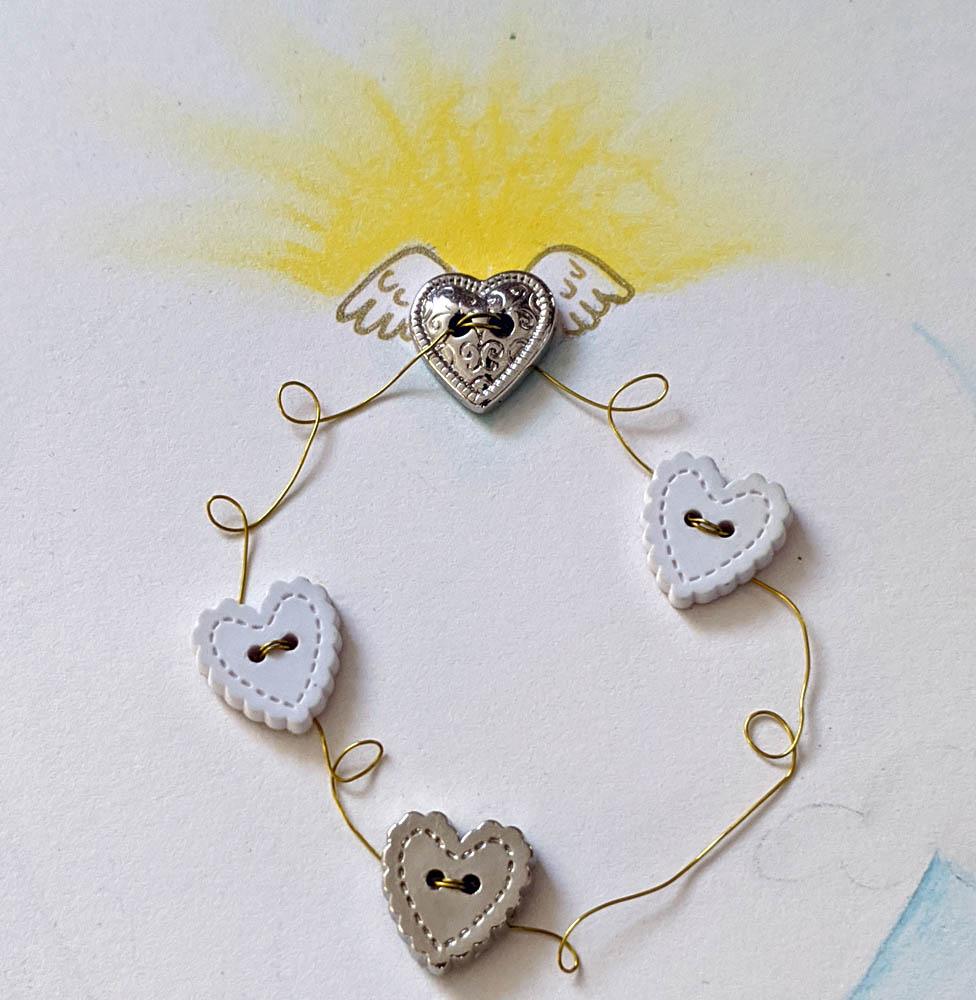

Heart valves can be stored for up to ten years and have the potential to help multiple people. They can be transplanted to save the lives of children born with heart defects as well as adults with damaged heart valves. The family were told this week that one of the heart valves belonging to Angelo Ray was successfully transplanted to a newborn baby that was born with a congenital heart disease.
Valentina was overwhelmed with emotion when she found out and said: "Now we know a part of our baby is definitely living on and it is an amazing legacy."
Angelo Ray and his family made a profound impact on Amy and changed her as a nurse, she says.
Now, if a baby meets the criteria, staff at King's College Hospital will always talk to the parents about the possibility of organ donation.
"Angelo Ray was the catalyst for some real proactive change in our thought process," Amy says.
The family gave the nurse a lasting passion for end of life care in neonates, so much so that she now leads on end-of-life care at the Royal Bolton Hospital Nicu. The hospital will be following the example of King's and making it standard practice to discuss organ donations in the Nicu.
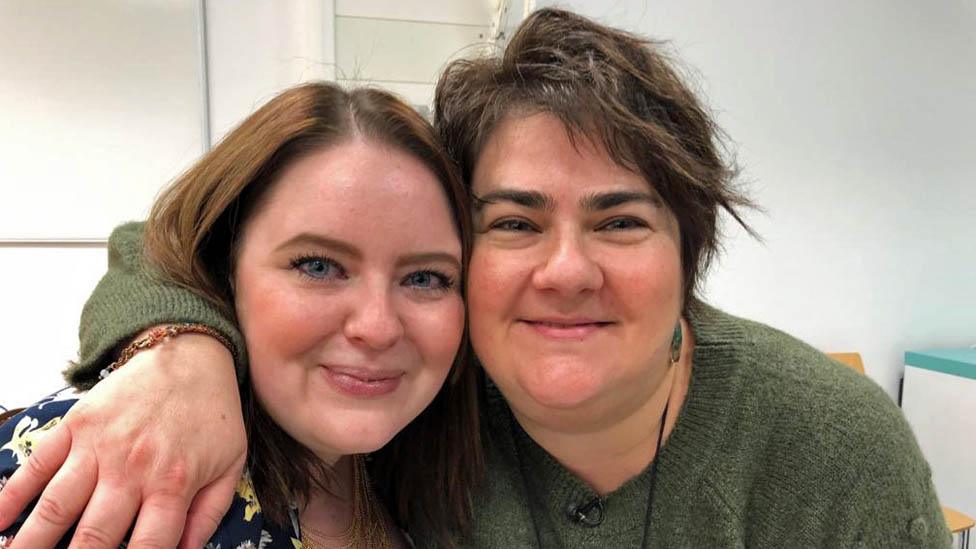
Amy with Valentina
"That is Angelo's legacy - one of heartbreak, courage and pushing of boundaries."
In the weeks that followed her son's death Valentina says she felt like an alien.
"The world and everyone around me looked different. If I saw people in the street smiling and laughing I would think, 'I've lost a baby, there is nothing to laugh about'"
"I made sure I took the time to grieve. I cried, I stayed in bed, I got angry."
Slowly, with Luigi and Leone by her side, Valentina began to feel stronger and more able to face the world again. She got a clean bill of health from the doctor and was told it would be safe to have another baby, if that is what she wanted.
"It would have been very easy at that point to let fear run my life and think, 'It wasn't meant to be, no more kids, my life is finished'. But my life is not finished," she says.
In August 2018 Mattia was born, two years after Angelo Ray. He was born in perfect health and is now a spirited 17-month-old.
Mattia joined his parents on a lantern-lit walk of remembrance during Baby Loss Awareness Week last year and will grow up knowing he is the third of three brothers.
"I want Mattia to know his brother was a special baby, not destined for this Earth," says Valentina.
"He came and gifted other people with life."
'I know that Angelo Ray won't be forgotten'
If you or someone you know is struggling with issues raised by this story, find support through the BBC Action Line.
Follow Kirstie Brewer on Twitter @kirstiejbrewer, external